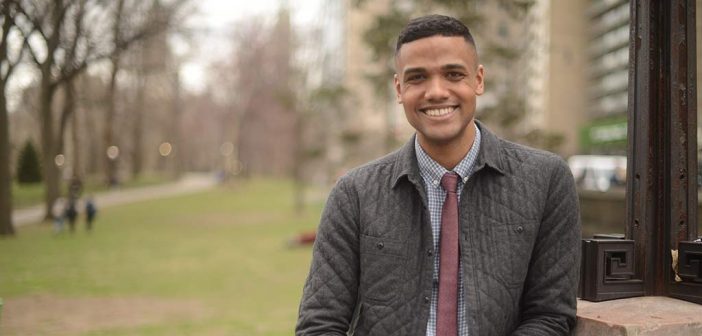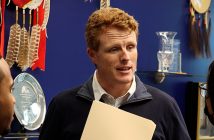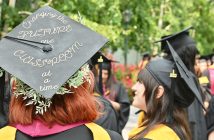There have been times in Kwame Akosah’s life when the system seemed stacked against him.
In 2008, while he was studying political science and English at UCLA, the financial crisis hit. His mother, who was single at the time, lost her job and spent her life savings. Soon, collection agencies became a familiar presence.
The experience crystallized his decision to go to law school.
“I wanted to take my passion for issues about economic, racial, and social justice and learn something that was practical,” he said. “There was something missing in my undergraduate courses and I needed some sort of tool kit to work in these areas.”
Akosah’s parents inspired him long before his mother faced struggles. His father immigrated to New York City from Ghana when he was 19 in the 1970s and worked as a courier. He got a bachelor’s degree at the University of Kansas and a master’s at Southern Illinois University. His mother, who is of German ancestry, met his father after moving from Illinois to California.
This means that visiting relatives requires traveling to rural Illinois and to the Kumasi region of Ghana, where he says he has more aunts and uncles than he can keep track of. It’s a blending of the cultural and ethnic that Akosah says makes him feel thoroughly at home in the United States, yet still attached to Ghana and the immigrant experience.
“My dad’s an immigrant, and he’s always driven into me the value of education. There was never a moment in my life when I was not going to go to college, and when I told him I was going to go to law school, he was completely thrilled,” he said.
Akosah said his parents really instilled in him “a powerful work ethic.” In his three years at Fordham Law, Akosah has worked with Project Vote in Washington D.C., the Brennan Center for Justice at New York University, the Legislation and Policy Clinic at Fordham Law, and the American Civil Liberties Union. This past semester, he worked in the office of the mayor to ensure the implementation of Local Law 29, which dictates that city agencies make voter registration available to their clients.
Akosah’s work has not gone unnoticed; he was selected as this year’s Fordham Law School recipient of the Monsignor James J. Murray Prize for Achievement in Public Service.
In the fall, he’s returning to the Brennan center as part of a two-year fellowship from the Equal Justice Works Foundation. He plans to help people with past criminal convictions who’ve been illegally denied their right to have voting privileges restored.
“I’ve had so many election law and voting rights experiences up to this point. I feel lucky to be able to work on it right out of law school,” he said.
He said that voting rights have become an especially important topic since the Supreme Court overturned Section 5 of the Voting Rights Act in 2013. That section required states and local governments to obtain federal pre-clearance before making any changes to their voting laws or practices.
“Without Section 5, it’s really incumbent upon public interest organizations to be on top of these cases,” said Akosah. “As there’s no receivership with the justice department anymore, you have to actually have eyes and ears on the ground, and find out where the [discriminatory]practices are going on. Because you can’t intercept them before they’re implemented like you could in the past.”
“Voting rights litigation is going to get more intense,” Akosah said, and he is looking forward to contributing to legal challenges on issues he is passionate about.
— Patrick Verel



